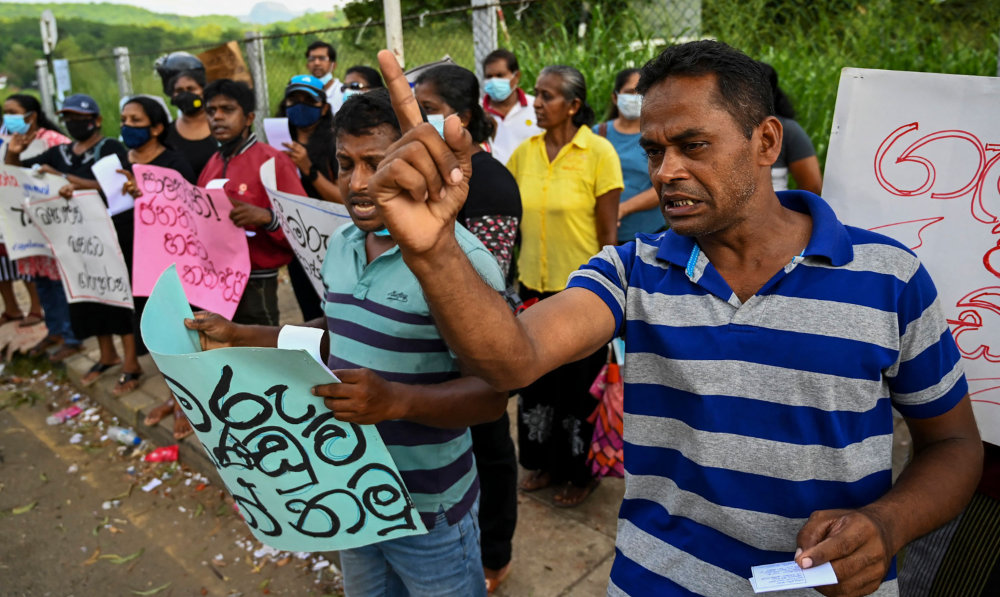COLOMBO: Sri Lanka police imposed a curfew in the central town of Rambukkana on Wednesday after anti-government protests turned violent and officers fired live bullets at demonstrators, killing one person and injuring dozens of others.
Angry over skyrocketing inflation, stalled imports of fuel, medicines, food, and hours of power cuts a day, people across Sri Lanka have staged protests since last month, demanding the resignation of President Gotabaya Rajapaksa.
In Rambukkana, an anti-government demonstrator was killed on Tuesday as police tried to disperse a crowd. About 30 others were wounded after law enforcers fired live rounds at them.
Spokesperson Nihal Thalduwa told local media that police had resorted to violence as “the situation could not be controlled.”
Amid public outcry, authorities announced they would investigate whether police had used excessive force.
Nihal Chandrasiri, monitoring director at the Human Rights Commission of Sri Lanka, told Arab News that a team of investigators was immediately sent to Rambukkana.
“The team will investigate who is responsible for giving orders to shoot and under what circumstances live ammunition was used,” he said. “We will speak to everyone involved — police, demonstrators, journalists covering the incident,” he added.
Protests across the country have intensified after the incident.
Demonstrators in Colombo paid a silent tribute to the victims in front of the presidential office.
President Rajapaksa took to Twitter to say he was “deeply saddened” by the shooting and that police “will carry out an impartial and transparent inquiry.”
The Rambukkana clash was the first deadly incident since the beginning of the nationwide protests.
It comes as Sri Lankan officials meet the International Monetary Fund to discuss an emergency bailout program. The island nation of 22 million is facing the worst economic crisis since its independence in 1948 and risks defaulting on its debts.




